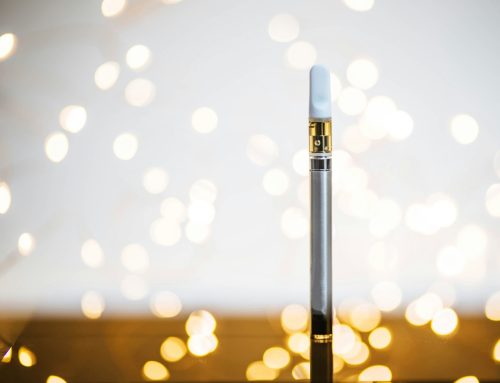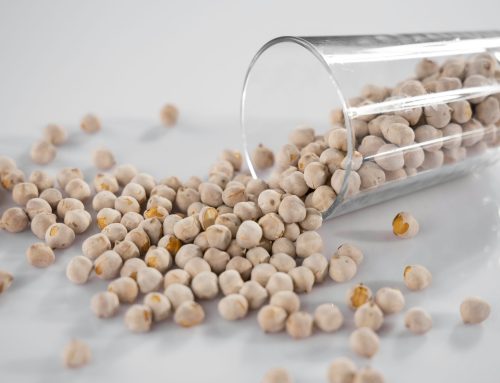Maintaining healthy skin is essential for both appearance and overall well-being. Healthy skin not only looks good but also feels good, boosting your confidence and comfort. By taking care of your skin, you can ensure it remains radiant and resilient against environmental stressors.
This article will provide six helpful tips to achieve healthier skin.
Contents
1. Adopt a Consistent Cleansing Routine
A consistent cleansing routine is fundamental for maintaining healthy skin. Cleansing removes dirt, oil, and makeup that can clog pores and lead to breakouts. It also helps eliminate impurities that accumulate on your skin throughout the day. Using a gentle cleanser suitable for your skin type ensures that your skin is clean without being stripped of its natural oils. It’s important to cleanse your skin twice a day—once in the morning and once before bed—to keep it fresh and clear.
When selecting a cleanser, take into account your skin type and any particular concerns you might have. For instance, those with oily skin should opt for a foaming cleanser to help manage excess oil. If your skin is dry or sensitive, opt for a hydrating, fragrance-free cleanser that will be gentle on your skin. Proper cleansing techniques are also crucial. Use lukewarm water and gently massage the cleanser into your skin in circular motions. Rinse thoroughly and pat your skin dry with a clean towel to avoid irritation.
2. Consider Professional Skin Treatments
Professional skin treatments can offer significant benefits in enhancing the health and appearance of your skin. These treatments are designed to address specific skin concerns more effectively than over-the-counter products. One such innovative treatment is the PRX Derm Perfection skin care treatment, which is a chemical collagen stimulator. This treatment is perfect for individuals seeking to enhance their skin texture without the lengthy recovery time that other treatments typically involve. By stimulating collagen production, PRX helps rejuvenate the skin, making it smoother and more youthful.
PRX Derm Perfection is particularly beneficial for those with uneven skin texture, fine lines, and dullness. Unlike traditional chemical peels, PRX does not cause peeling or significant redness, allowing you to continue your daily activities without interruption. This treatment can be an excellent addition to your skincare regimen, providing noticeable improvements with minimal effort. For best results, consult with a dermatologist to determine if PRX Derm Perfection is suitable for your skin type and concerns.
3. Moisturize Regularly
Moisturizing is a key step in any skincare routine, helping to maintain hydration and prevent dryness. Even if you have oily skin, moisturizing is essential to keep your skin balanced and healthy. Moisturizers work by sealing in moisture, creating a protective barrier that prevents water loss and keeps your skin soft and supple. The right moisturizer can also address specific skin concerns, such as reducing redness or providing anti-aging benefits.
Choosing the right moisturizer for your skin type is crucial. For oily or acne-prone skin, lightweight, non-comedogenic moisturizers are ideal as they won’t clog pores. If you have dry skin, look for richer, more emollient formulas that provide intense hydration. Apply moisturizer immediately after cleansing while your skin is still slightly damp to lock in moisture effectively. Consistent moisturizing helps improve skin texture and tone, making your skin appear healthier and more radiant.
4. Protect Your Skin from the Sun
Protecting your skin from the sun is crucial to maintaining its health and preventing premature aging. Ultraviolet (UV) rays from the sun can cause significant damage to the skin, leading to wrinkles, dark spots, and an increased risk of skin cancer. Using a broad-spectrum sunscreen with an SPF of at least 30 can help shield your skin from these harmful rays. Apply sunscreen every morning, even on cloudy days, as UV rays can penetrate through clouds and windows.
In addition to wearing sunscreen, take other protective measures to guard your skin against sun damage. Wear protective clothing, such as long sleeves, hats, and sunglasses, especially during peak sun hours between 10 a.m. and 4 p.m. Seek shade whenever possible and avoid tanning beds, which can be just as harmful as the sun. By consistently protecting your skin from the sun, you can prevent damage and maintain a healthier, more youthful complexion.
5. Stay Hydrated and Eat a Balanced Diet
Hydration and nutrition play significant roles in the health of your skin. Drinking plenty of water helps keep your skin hydrated from the inside out, promoting a plump, radiant appearance. Aim to drink at least eight glasses of water a day, and more if you’re active or live in a hot climate. Proper hydration helps maintain skin elasticity, reduce the appearance of fine lines, and support overall skin health.
A balanced diet rich in vitamins, minerals, and antioxidants is also essential for healthy skin. Foods like fruits, vegetables, nuts, and seeds provide the nutrients your skin needs to repair itself and stay healthy. Vitamin C, found in citrus fruits and leafy greens, helps with collagen production, while omega-3 fatty acids, found in fish and flaxseeds, keep your skin supple and moisturized. Avoiding excessive sugar and processed foods can also prevent breakouts and inflammation. By focusing on hydration and a nutritious diet, you can support your skin’s health from the inside out.
6. Get Enough Sleep and Manage Stress
Adequate sleep and stress management are vital for maintaining healthy skin. During sleep, your body repairs and regenerates skin cells, making it essential for skin health. Lack of sleep can lead to dull skin, dark circles, and an increased risk of breakouts. Aim for seven to nine hours of quality sleep each night to allow your skin to repair and rejuvenate.
Stress can negatively impact your skin, causing issues such as acne, eczema, and psoriasis to flare up. High-stress levels increase the production of cortisol, a hormone that can lead to increased oil production and inflammation. Managing stress through activities such as exercise, meditation, and hobbies can help improve your skin’s condition. Regular physical activity boosts circulation, delivering more oxygen and nutrients to your skin, while relaxation techniques can reduce stress and its adverse effects on your skin. By prioritizing sleep and managing stress, you can enhance your skin’s health and appearance.
Conclusion
All in all, achieving healthier skin involves a combination of professional treatments, consistent routines, and lifestyle changes. These six tips provide a comprehensive approach to skincare, helping you achieve and maintain radiant, healthy skin. Prioritize these practices in your daily routine to enjoy the benefits of well-nourished and resilient skin.








Leave A Comment